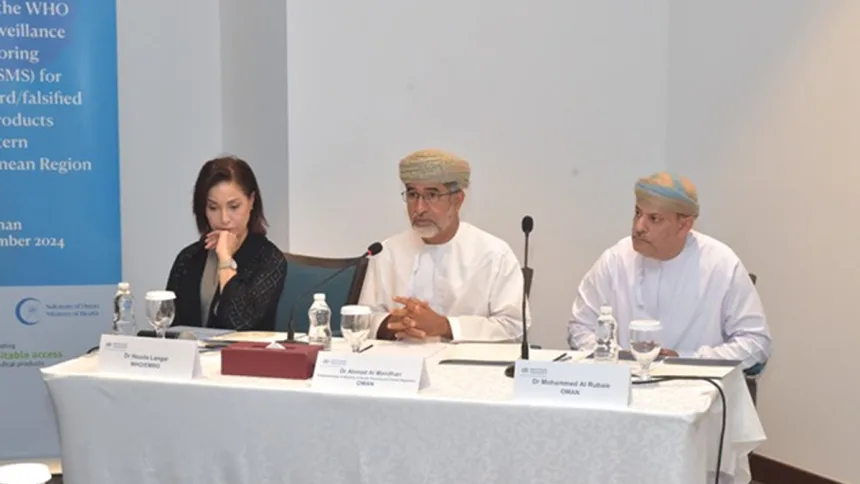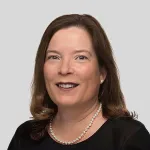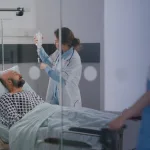December 2024- A collaborative workshop, hosted by Oman’s Ministry of Health through its Drug Safety Center and organized by the World Health Organization’s Eastern Mediterranean Regional Office (EMRO), kicked off at the Intercity Hotel in Muscat.
The workshop launching ceremony was held under the patronage of H.E. Dr. Ahmed Salem Saif Al-Mandhari, MOH Undersecretary for Health Planning and Regulation. It was attended by Dr. Houda Langar, Regional Advisor for Medicines and Health Technologies, Dr. Mohammed Hamdan Al-Rubaie, Director General of the Drug Safety Center at the Ministry of Health, and several officials from the Ministry of Health and the World Health Organization.
The three-day workshop is attended by 50 participants from 22 countries across the Eastern Mediterranean Region. It targets coordinators responsible for the WHO system for monitoring and surveillance of substandard and falsified medical products in the region. Participants include representatives from countries across the region, such as the Gulf Cooperation Council (GCC) states, Egypt, Libya, Iraq, Jordan, Pakistan, Afghanistan, Iran, and Somalia.
Also Read: WHO announces first prequalification of a tuberculosis diagnostic test
The workshop aims to enhance national capacities for managing falsified medical products, strengthen cooperation and information exchange among regulatory authorities in the region, and present the WHO strategy for preventing, detecting, and responding to unsafe medical products. Furthermore, the workshop highlights the use of the WHO Global Surveillance and Monitoring System (GSMS) portal for reporting unsafe medical products.
During the first session, a report was presented on the general situation in the region, providing participants with an overview of the WHO strategy for prevention, detection, and response. The session also covered the WHO Global Surveillance and Monitoring System (GSMS) and the role of focal points. Participants engaged in a virtual training workshop with the World Health Organization on falsified medical products.
The second session addressed ways to prevent substandard (falsified) medical products by strengthening regulatory systems. Discussions focused on the role of market surveillance, risk-based inspections and monitoring, as well as border control and tackling counterfeit medical products.



















